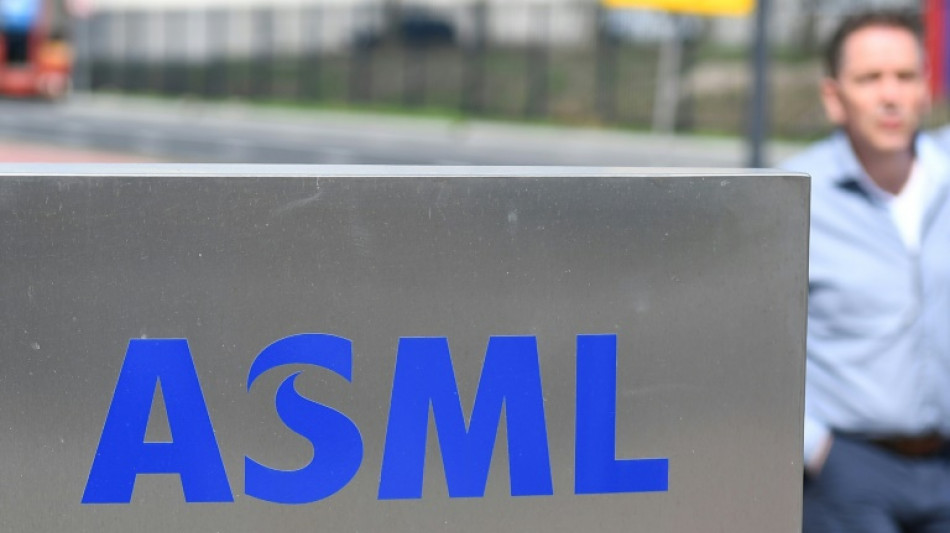
CMSD
-0.3400


Dutch tech giant ASML warned on Wednesday of growing economic uncertainty due to US tariffs but the company kept its 2025 sales forecast intact.
Shares in ASML, which makes cutting-edge machines for the chip sector, plunged at the market open, giving up around seven percent as the closely watched net bookings figures came in below expectations.
"Our conversations so far with customers support our expectation that 2025 and 2026 will be growth years," said CEO Christophe Fouquet.
"However, the recent tariff announcements have increased uncertainty in the macro environment and the situation will remain dynamic for a while," he added.
The United States has opened the door to tariffs targeting semiconductors and chip-making equipment, with Trump saying Sunday an announcement would be made "over the next week".
Trump has imposed a 10 percent global tariff on all imports to the United States, while pausing for now higher duties for goods from the European Union and dozens of other countries.
Despite the tariff turmoil, ASML firm predicted sales for this year at between 30 billion and 35 billion euros ($34.1 billion and $39.8 billion), unchanged from previous forecasts.
Net bookings, the figure most scrutinised by traders as a predictor of future performance, were 3.9 billion euros in the first quarter, compared to 7.1 billion euros in the fourth quarter of last year.
This was significantly below what the financial markets had been looking for, resulting in the share sell-off.
Sales for the first quarter came in at 7.7 billion euros, in line with the firm's expectations.
Fouquet predicted second-quarter total net sales between 7.2 billion and 7.7 billion euros.
ASML's net profit came in at 2.4 billion euros, compared to 1.2 billion euros in the first quarter of last year.
Longer term, ASML believes the rapidly expanding AI market will push sales up to between 44 and 60 billion euros by 2030.
"We still see a lot of strength in AI. In fact some of the demand for this year... but also for next year has solidified. So that's very encouraging," said Fouquet.
- China chip curbs -
The financial impact of the tariffs on the firm, Fouquet said, was "something that we don't know how to quantify yet. But this is adding definitely uncertainty on the long term."
Tariffs aside, the tech giant was already caught in the middle of a US-led effort to curb high-tech exports to China over fears they could be used to bolster the country's military.
Earlier this year, the Dutch government announced it was tightening its export controls on advanced semiconductor production equipment, but said the measures targeted a "very limited" number of goods.
ASML responded at the time that the moves would have "no additional impact" on its business.
Beijing has been infuriated by the export curbs, describing them as "technological terrorism."
J.Thompson--ThChM